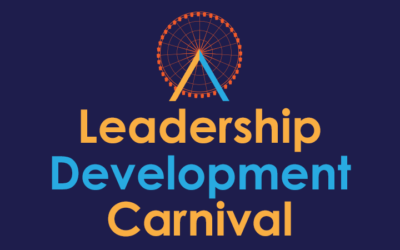I gave an interview last night and as soon as the subject of success came up I jumped in with my favorite bit of advice.
Interviewer: What’s the most important thing an aspiring leader can do to improve their chances of career success?
Me: Work on your emotional intelligence skills.
Interviewer: Why?
Me: There is a high correlation between high performance and emotional intelligence. Plus people just are happier working with people who know how to work with people.
Interviewer: Wait, how can making our employees feel happy make us more successful?
And there we come back to the misunderstanding most people find themselves in when they think about why (and how) to build their emotional intelligence (EQ): an assumption that emotional intelligence means the ability to express emotions. Here’s my best advice to orient your thinking around EQ – don’t think of emotions as the labels we give children for their feelings (like happy and sad), think of the word “feelings” and then explore the many non happy/sad feelings you have every day. With this more subtle exploration of feelings, you gain a a leadership advantage.
A Simple Exercise to Build Your Emotional Intelligence
Fill in this blank, “I feel ___________ and __________.”
- interested/bored
- focused/distracted
- warm/chill
- high energy/low energy
- excited/blah
- stiff/flexible
- confident/unsure
- ________/________
Now ask yourself. “Why do I feel this way and how is this feeling affecting my work in this moment?”
Now that you understand yourself better, ask someone else how they’re feeling and explore this with them. What does this tell you about how effective they are at work in this moment? How can you use this information to help them?
There. You are building your emotional intelligence.
Feelings Give Leaders Important Information
Our feelings have many layers of subtlety and we can use language to explore them if we simply try. The problem is that too often we don’t even try. We don’t believe our feelings are important and so we don’t challenge ourselves to find the label that fits our exact experience, and explore it. This is challenge number one in developing EQ, and it’s compounded when we don’t develop the ability to sense these levels of subtlety in others.
How does our inability to understand and manage these subtleties hurt us in pursuing success? So many ways… Here are a few examples.
- We ignore our discomfort when giving a presentation but the audience likes the next presenter better because they’re just more energetic
- We push through a meeting with a distracted colleague (who we don’t notice is distracted) and end up frustrated when we have to have the discussion all over again two days later because they don’t follow through. We waste time because we didn’t stop to help our colleague deal with the distraction and move beyond it to get the work done.
- In our enthusiasm for a topic, we talk over a colleague who is upset about something someone else said and generate tension in the meeting, which people hold us accountable for so they resist our recommendations and decisions
Paying attention to these subtle signals can give you the edge in managing yourself and others for success. At the end of the day most people can’t (or won’t) tell you about all the little things you do and don’t do that make you successful (or not). It’s just a feeling. Get into the feeeling state to find it and fix it where you can.







